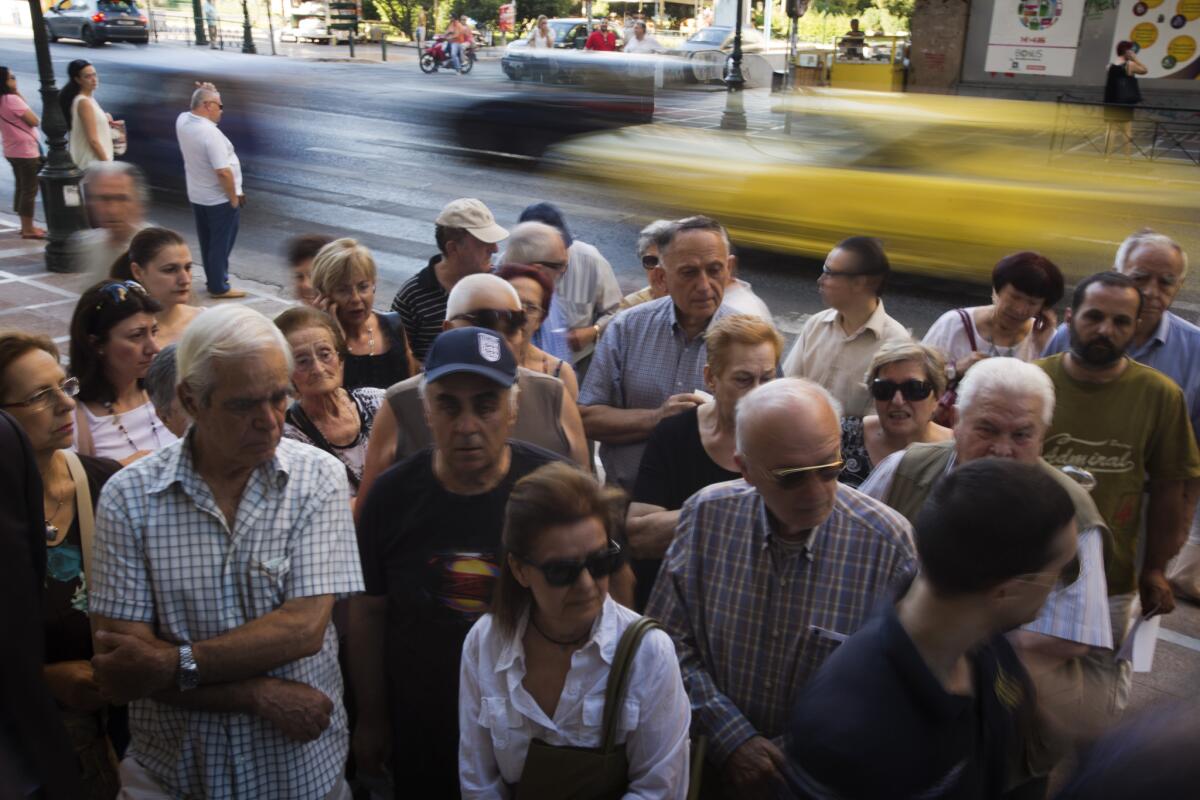Readers React: Debt woes in Greece

Pensioners wait outside the main gate of the national bank of Greece in Athens on July 9 to withdraw money; the maximum allowed is about $132.
- Share via
To the editor: Greece has been living well beyond its means for years, financing its lifestyle with borrowed money, and apparently believing, like in the parable of the loaves and fishes, that this could continue forever. (“Greece submits reform package,” July 10, and “A deadline for Greece,” July 8) At the same time, Greece’s lenders were willing to finance this unsustainable behavior well beyond Greece’s ability to repay because they were apparently convinced that Greece did not have the chutzpah to default on its debts and because they found the commissions and profits too tempting to resist.
Now that the day of reckoning has arrived, both sides are acting like stubborn children. It is time for adult supervision on the playground.
For Greece, this will mean having its “credit card canceled” and having to start living within its means. And for the lenders, this will mean having to write off a significant portion of Greece’s debt and avoiding making such high-risk loans in the future.
James Fitzgerald, La Jolla
..
To the editor: There is an old adage: “ I owe you a little money, woe on me. I owe you a lot of money, woe on you.”
The reality is that without further European support, Greece is likely to default on its external debts. Its creditors stand to lose billions, which may be a factor behind the continuing willingness to negotiate.
William S. Comanor, Los Angeles
..
To the editor: I got a good laugh from a photo caption in the business section: “Traders monitored news reports, looking for any scrap of intelligence from Greece.”
I, too, am looking for any scrap of intelligence in how the Greeks have handled their economy.
My Greek grandfather, who immigrated to the U.S. about a hundred years ago, would shake his head wondering what happened to his homeland.
Carl Jerris, El Cajon
More to Read
A cure for the common opinion
Get thought-provoking perspectives with our weekly newsletter.
You may occasionally receive promotional content from the Los Angeles Times.






